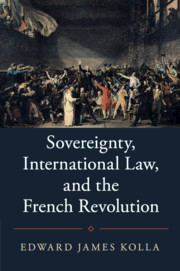War as a driving force of History. 19th and 20th centuries
Panel within the 14th Conference of the Spanish Association of Contemporary History (Alicante, Spain, 20-22 September 2018;
Miguel Alonso Ibarra (Universitat Autònoma de Barcelona)
Daniel Aquillué (Universidad de Zaragoza)
Historically, war has played an essential role in the various political, social and cultural transformations occurred in the world. The different revolutions and the conflicts resulting from them; colonial wars waged by European powers in Africa, America and Asia; the two world wars; the multiple European civil wars (Russia, Finland, Ireland, Spain, Italy, Greece, Yugoslavia); military interventions in the frame of international mandates (Yugoslavia, Iraq); and other conflicts between non-state actors (paramilitary violence in low-intensity wars), form a bloody range of episodes which have shaped in a very significant way the historical evolution of the European continent and other geographical contexts. They have generated processes whose echoes are still heard nowadays: populations’ displacements, social and political violence, state repression, genocides, ethnic reconfigurations, emergence of new national realities, nationalism, social transformations due to military mobilisation, or new social and political identities, among many others. An aspect emerging always present in History but that reaches its peak during the 19th and 20th centuries (total war), when the huge dimensions of armed conflicts spurred many processes of political, social and ideological transformation.
Within this frame, our aim is to analyse war as a key historical driving force of the contemporary era. We seek to offer a debate environment for researchers and scholars working not only on armed conflicts, but also about processes of violence, of social change or of national development emerged in the contexts of, as precedent or as a product of wars. The limits of armed conflicts; the category/concept of civil war and its various uses; the specificity of certain types of war –total war, fascist war–; the transformations of territory and state structures generated by armed conflicts; the evolution of war as the driving force of social progression or regression during the 19th and 20th centuries; social, political and cultural identities exported from war and their influence on individuals and societies; revolutions, paying special attention to the war-linked consequences they had; nineteenth-century guerrilla and its relationship with twentieth-century terrorism; nineteenth-century paramilitary forces (like Spanish Somatén) and their connection with fascist paramilitarism; postwars as a moment of historical impasse in which there is a reactive violence against the defeated; peace as a concept which changed throughout two centuries; or the role of memory in these traumatic warlike pasts, would be questions and topics that will have a place within this panel, albeit not the only ones. Finally, we also seek to boost transnational and comparative approaches through the participation of researchers and scholars coming from other latitudes, in order to conform a debating group as rich and heterogeneous as possible. Thereby, rather than the traditional exposition of papers, we aim to develop a debate focused on concepts and categories of analysis, essential tools in our job as historians.
Individual submissions should include a title, an abstract of no more than 100 words, and a brief biography including your name, institutional affiliation (if applicable), and e-mail contact. Languages accepted are English and Spanish (as well as the languages than can be used in the panel's debate) Please submit your proposal/abstract to miguel.alonso.ibarra@gmail.com or danielaquillue@gmail.com by March 1st, 2018. Notice of acceptance will be sent within ten days from the deadline.








